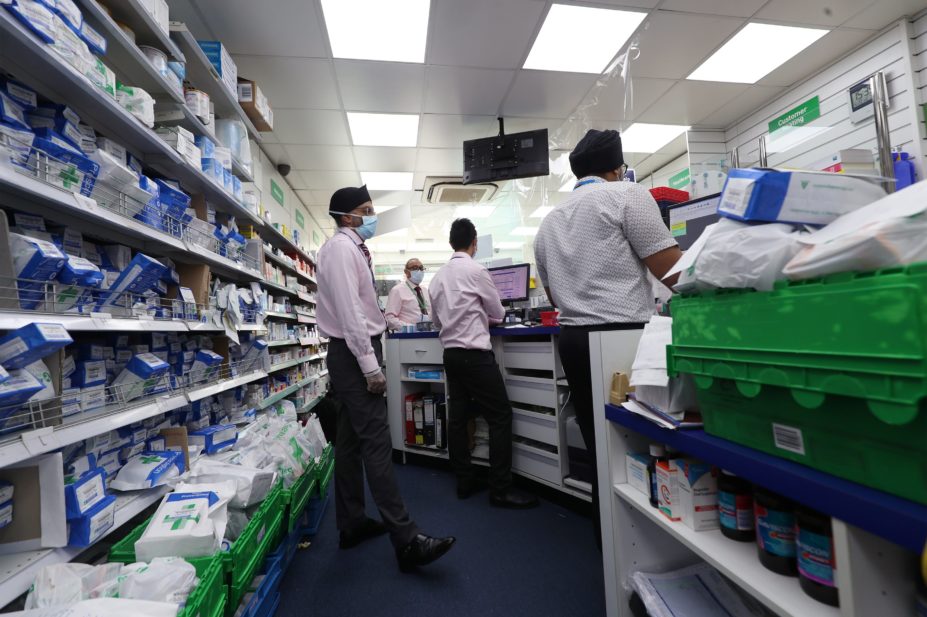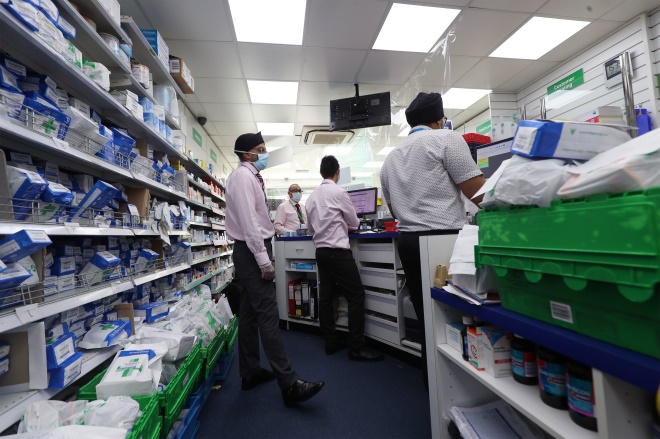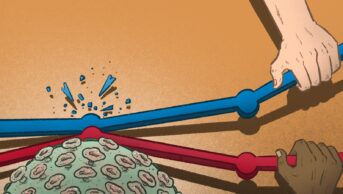
PA Images
Open access article
The Royal Pharmaceutical Society has made this article free to access in order to help healthcare professionals stay informed about an issue of national importance.
To learn more about coronavirus, please visit: https://www.rpharms.com/resources/pharmacy-guides/wuhan-novel-coronavirus

Source: PA Images
Research has shown that some groups, including men and people from a black, Asian or minority ethnic background, are more succeptible to COVID-19 infection than others
NHS England has advised pharmacists to risk assess their staff who may be particularly vulnerable to COVID-19, including those from a black, Asian or minority ethnic (BAME) background.
In a letter dated 29 April 2020, NHS England said that “emerging UK and international data” suggest that people from BAME backgrounds are “being disproportionately affected by COVID-19”.
Therefore, as a precaution, “employers should risk assess staff at potentially greater risk and make appropriate arrangements accordingly,” the letter says, adding that organisations should “make adjustments, including working remotely or in a lower risk area”, as necessary.
While community pharmacy was not listed as a recipient of the letter, NHS England told The Pharmaceutical Journal that pharmacists would be advised of the letter through their clinical commissioning group, as well as through media reports.
The advice comes as Public Health England (PHE) launched a review on 4 May 2020 to analyse how different factors, such as ethnicity, gender and obesity, can impact on patients’ health outcomes from COVID-19.
PHE said in a statement that the review will look at thousands of health records for COVID-19 patients “to establish more robust data on the factors impacting the number of cases and health outcomes for different groups within the population”.
It added that a specific analysis will be carried out on outcome data for healthcare workers, initially focusing on doctors and nurses.
As of 28 April 2020, four members of pharmacy staff were reported to have died as a result of COVID-19.
When asked what measures LloydsPharmacy has taken, a spokesperson said: “The safety and wellbeing of all our colleagues is our absolute priority.”
Meanwhile, a spokesperson for Well Pharmacy said the multiple was “still understanding and assessing” NHS England’s advice.
Ravi Sharma, director for England at the Royal Pharmaceutical Society, said the Society “recognises that people of a BAME background may be more at risk to being affected by COVID-19 in the workplace”.
“As a precaution during the pandemic, we suggest that pharmacies should risk-assess staff to ensure those at a potentially greater risk of COVID-19 are well protected. It is important that all staff are able to access such support services and polices, should they need to, and be free from the fear of discrimination on the basis of any protected characteristics.”
The Welsh government published similar advice on 1 May 2020 regarding risk assessments for BAME staff who might be more susceptible to COVID-19. “We are also clear that we must exercise this duty of care in a precautionary way even as the evidence base about differential impact of COVID-19 on members of our workforce is evolving,” it said.
“This includes ensuring that employers are able to undertake proper risk assessments for those individuals who may potentially be more vulnerable in the workplace, including those from a BAME background.”
A spokesperson for the Welsh government said this “applies to all frontline health and social care staff who may potentially be more vulnerable in the workplace, including those from a BAME background — pharmacists and pharmacy support staff are part of this”.


